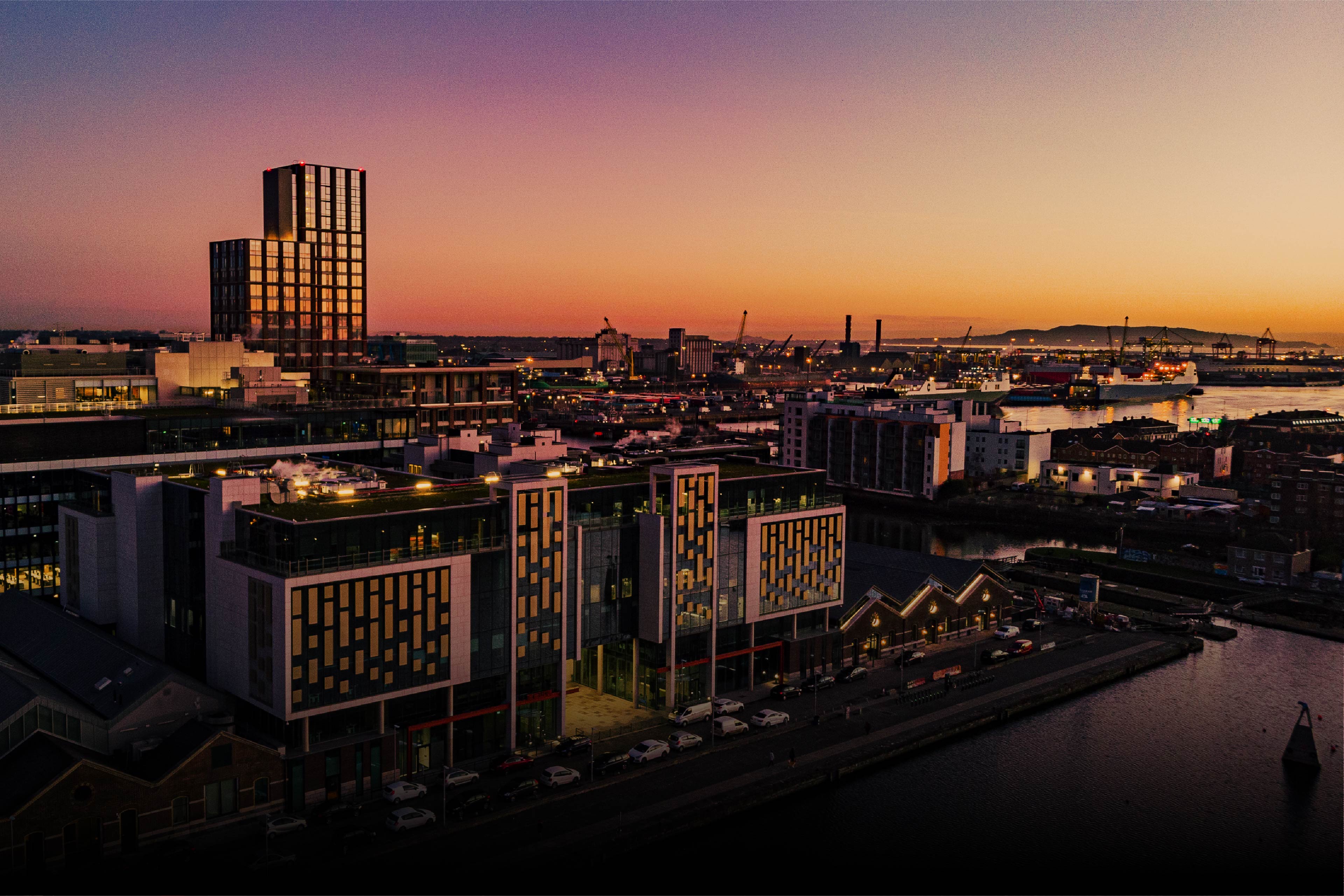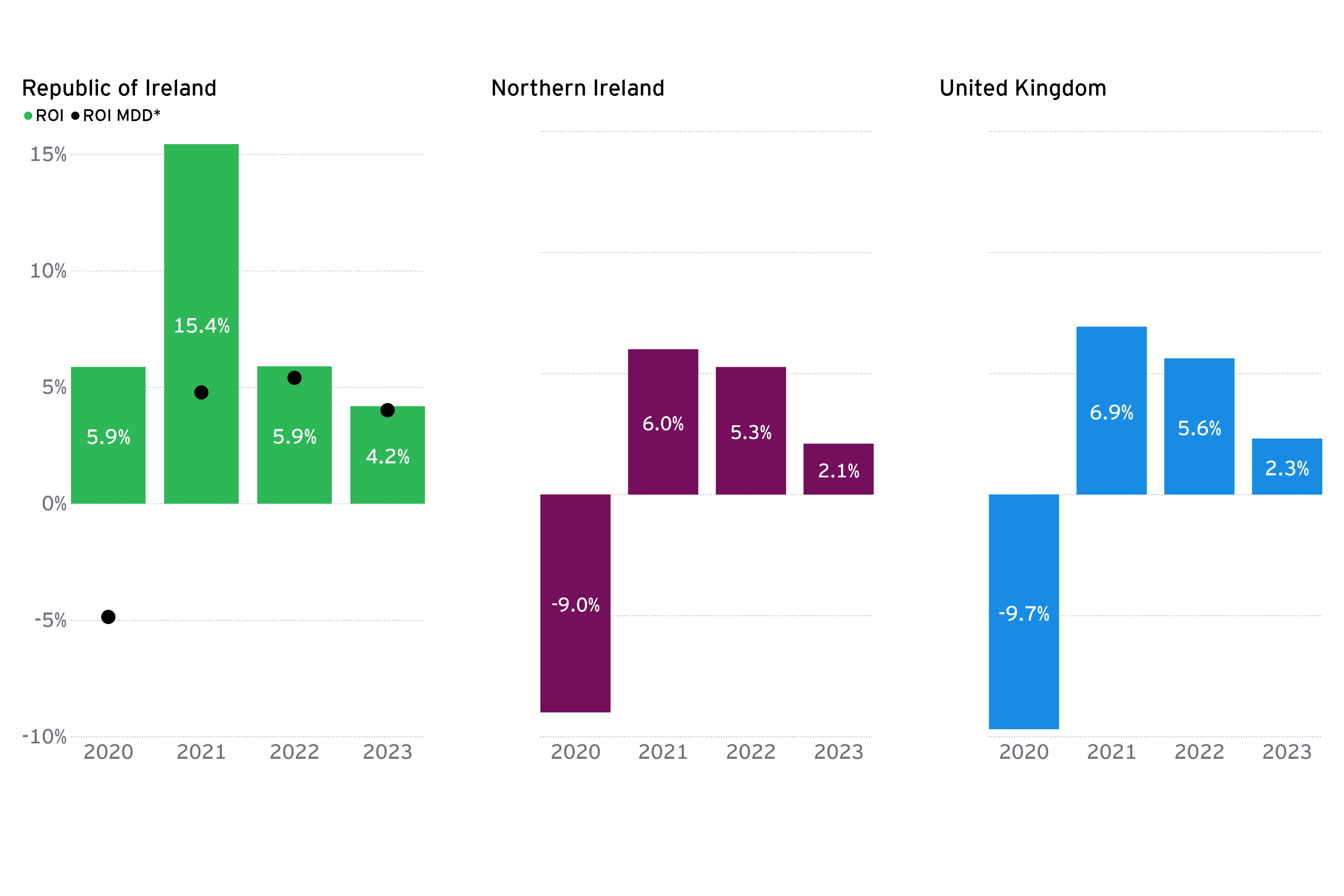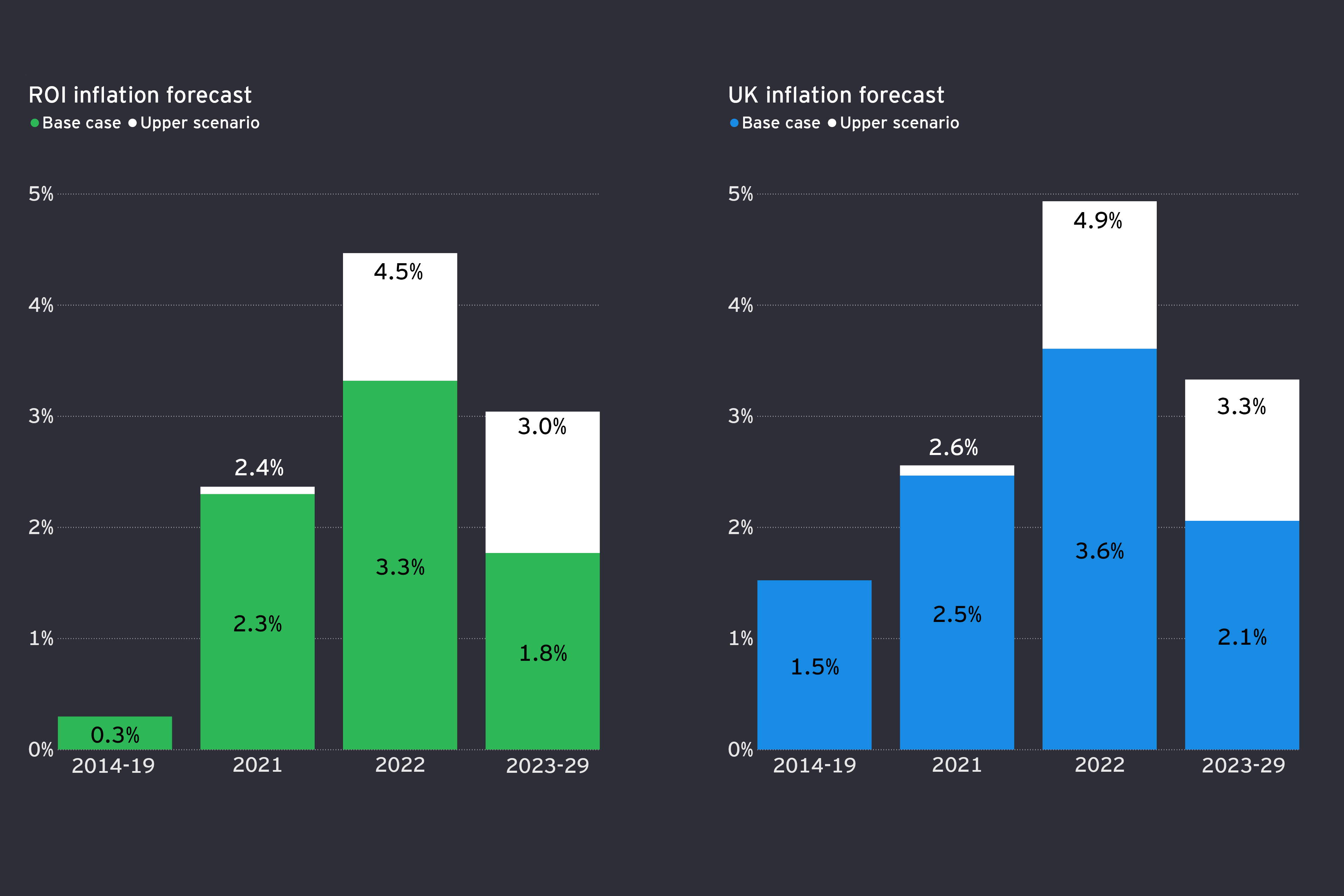As we enter the final month of 2021, talent emerges as a top business challenge. Organisations will have to think creatively to attract and retain top talent, which may mean offering different types of contracts, blended working locations, and a renewed focus on core values. In 2022, wage pressures are likely to increase as the labour market tightens and employees gain more choice.
Prices present a headwind to growth
The headwinds of prices and labour shortages are partly a function of the resilience of the economy, but they are somewhat likely to dampen growth. A period of price increases was expected given the sharp falls experienced a year ago, but the critical question is whether they will be transitory or the start of a new, more worrying trend.
EY expects ROI inflation to average 3.3% in 2022. Thereafter, we expect it to remain above the low levels experienced in the last five years. In the UK, inflation is forecast to average 3.6% in 2022, and to revert to a medium-term trend of 2.1% thereafter.
However, in a higher inflation scenario, inflation is forecast at 4.5% in 2022 for ROI and 4.9% for the UK. This scenario assumes that the recent trend of elevated prices will continue into the first half of 2022, with sustained wage inflation, higher energy prices, and an increased costs of consumer goods due to new standards and policies.
EY inflation forecast









